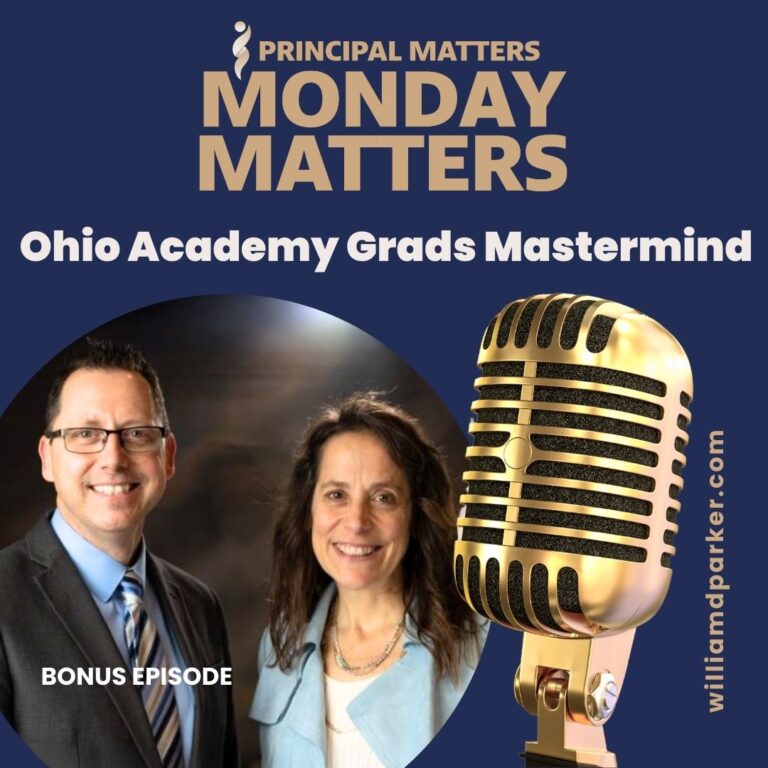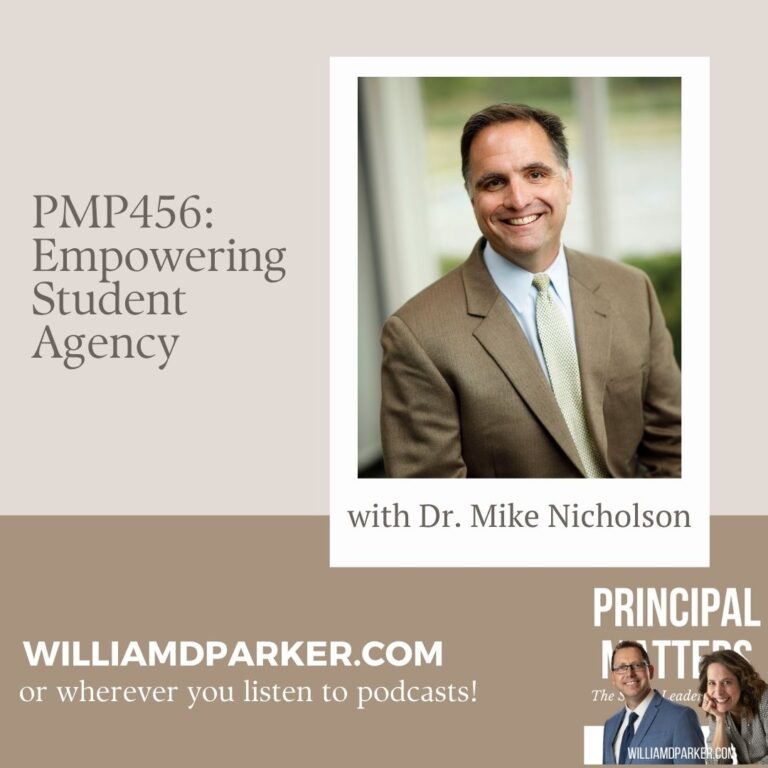Podcast: Play in new window | Download
What kind of school environment encourages teachers to race tricycles down the hallways while also engaging in deep conversations about student learning in PLC’s?

Kenny Ward, this week’s special guest, discusses how schools like his own must keep exploring ways to create cultures of learning and fun at the same time.
In our conversation, he explores:
- How do you help adults learn in ways that encourage them in better practices?
- How do you cultivate a school culture where students and teachers want to learn and grow
- How do you understand your “why” so you stay motivated in leading and serving others?
Principal Kenny Ward
Kenny Ward is Principal of Bridge Creek Middle School in Blanchard, Oklahoma, a reward middle school where his team practices professional learning communities every day.

He is also the 2017-2018 Oklahoma Middle Level Principal of the Year and has served on the Executive Board for CCOSA, Oklahoma’s state association for school leaders.
He is active in connecting with other school leaders across the state and country in professional learning. He is also an adjunct professor at Southern Nazarene University. As a part of his doctoral dissertation and university work, Kenny has visited schools across the state as he researches best practices among school leaders.
In this conversation, we explore three topics:
Topic 1: Andragogy vs Pedagogy: Teaching Teachers, Not Just Teaching Students.
As educators, we talk a lot about pedagogy: the methods we use for helping students learn. But andragogy, the methods we use for teaching adults, is a topic we may often ignore. Malcom Knowles categorized andragogy in five ways:
1. Need to Know
2. Foundation
3. Self-Concept
4. Orientation
5. Motivation
When adults engage in a “power of struggle” with learning concepts, they are more open to meaningful professional development. For further reading on lessons from Knowles, go here.
As teachers are evaluating their own instruction, help them explore the following questions:
1. How do you know if students are learning?
2. How are your fellow teachers reaching students?
3. How are you using your own “power of struggle” to motivate new teacher learning?
Your brain must build the capacity for learning by practice–an important truth, not just for students, but also for teachers. For research on the brain and learning, Kenny recommends The Talent Code.
Topic 2: School Culture–The Foundation for Strong Learning
Kenny also explains how culture is the foundation for student learning. He recommends Fish: A Proven Way to Boost Morale and Improve Results, a book that he studied with his teachers during their first year together. Kenny also shares some great stories of how his teachers and students simply have fun together–making school a place where students want to be.
Topic 3: Understanding Your Why–What keeps you motivated?
In the final part of our conversation, Kenny shares personal stories about his own troubled childhood, how he hated school, and his ability to relate to children in trauma. He recommends the book Start with Why: How Great Leaders Inspire Everyone to Take Action. As Kenny explains, “If your why doesn’t make you cry, you haven’t found your why yet.”
Let’s Wrap this Up
If you are growing as a leader, you are also growing as a learner. And as adult-learners, we can benefit from understanding the cycles involved in our learning. We can either understand how to better engage the adult-learners (educators) in continued learning or we can “dump loads of information” on them with little result. Let’s keep exploring new ways to encourage learning, culture, and motivation.
Now It’s Your Turn
What ways are currently engaging teachers in continuous learning? How are you helping them “struggle” so they see areas of needed growth? How do you encourage a culture where teachers and students want to learn? What’s one way you can reconnect with your “why” as a school leader this week?
Sign-Up For Free Updates and Ebook
When you enter your email address below, you will automatically receive my newest posts and a free Ebook, 8 Hats: Essential Roles for School Leaders. Let’s keep learning together!
Subscribe for free weekly updates and receive free e-book!
(function($) {window.fnames = new Array(); window.ftypes = new Array();fnames[0]=’EMAIL’;ftypes[0]=’email’;fnames[1]=’FNAME’;ftypes[1]=’text’;fnames[2]=’LNAME’;ftypes[2]=’text’;}(jQuery));var $mcj = jQuery.noConflict(true);
Principal Matters–The Book!

School leaders are very busy, so each of the twenty-four chapters is designed as a quick-read and followed with take-action questions for follow-up or reflection. If you want practical ideas on understanding your purpose, managing school teams, dealing with challenges, and leading with courage, action, motivation, and teamwork, go HERE to pick up a copy for you or your team.
Messaging Matters

Harness the power of messaging to create a culture of acknowledgment, respect, and celebration. Written specially for leaders, this title is divided into three parts, helping readers to maximize their role as chief communicators with students, teachers, and parents and community. Each chapter includes suggestions for using digital tools to enhance messaging and ends with reflection questions and practical next steps.


